Doe v. Trump: Birthright Citizenship and the 14th Amendment
What does it mean to be an American citizen in the 21st century?
Soon after President Trump issued Executive Order 14160, Protecting the Meaning and Value of American Citizenship, 21 states joined Massachusetts in the U.S. District Court for the District of Massachusetts to file a Complaint against this Executive Order, challenging President Trump’s actions and interpretation of Section 1 of the 14th Amendment.
A Motion to Proceed Pseudonymously in Doe v. Trump (1:25-cv-10135) revealed the declaration of O. Doe, a pregnant Haitian, who among many others, now lives in fear that she will lose her “benefits” for her unborn child since her child will not have a “cherished” social security number to collect “benefits” from our tax dollars.
Doe wants her child to begin life dependent on the government, an idea that defies the American spirit of self-reliance.
Clearly, President Trump wants this Executive Order to go to the U.S. Supreme Court to address the interpretation of Section 1 of the 14th Amendment and what it means to be an American citizen.
Section 1 of the 14th Amendment states: All persons born or naturalized in the United States, and subject to the jurisdiction thereof, are citizens of the United States and of the State wherein they reside. No State shall make or enforce any law which shall abridge the privileges or immunities of citizens of the United States; nor shall any State deprive any person of life, liberty, or property, without due process of law; nor deny to any person within its jurisdiction the equal protection of the laws.
On its face, the Plaintiffs’ Complaint sounds meritorious since America’s founders never intended for the Executive Office to have the power to overthrow congressional laws or override the Constitution and it is an “unprecedented executive action.”
The Complaint discusses “Article 1, Section 1 of the U.S. Constitution that states “[a]ll legislative Powers herein shall be vested in Congress. [And that also means that the U.S. Supreme Court cannot legislate from the bench and create new laws, i.e., Roe v. Wade, but the Left never discuss that fact.]
Furthermore, the Plaintiffs counter that the decision in United States v. Wong Kim Ark, 169 U.S. 649 (1898) settled the issue of the interpretation of birthright citizenship more than 125 years ago. [The issue of Chinese immigrants giving birth to children born in America did come up during the 1866 Senate debate - see below.]
But, that said, America’s founders did not envision that America would enter an era of upside-down world where the children of illegal aliens who were born in America would receive welfare benefits, or ideas like “men” can get pregnant, thus creating Executive Orders simply to right a wrong established by the Biden Administration’s multiple Executive Orders – fight fire with fire.
But doesn’t fighting fire with fire leave everyone burnt?
Congress is supposed to make the laws (and that makes sense - we want many voices to debate the issues that create laws). Congress does hold the purse, yet President Trump’s Executive Orders will save taxpayer money, not spend money, in contrast with Biden’s Executive Orders that spent a lot of taxpayer money or Obama’s Deferred Action for Childhood Arrivals (DACA) Executive Order established in 2012. How much did the taxpayers spend on DACA? Where was the outrage when Biden and Obama took the purse from Congress to illegally spend taxpayer funds?
Understanding the context of the 14th Amendment is important, because not only was illegal immigration not an issue in 1868 when ¾ of the states passed the 14th Amendment, but the 14th Amendment was also clearly intended to protect former slaves born in America.
Those who learned history know that after the Civil War ended, the 13th Amendment abolished slavery, and the Republicans passed the Civil Rights Act of 1866, leading to the 14th Amendment, and that the intent of Section I of the 14th Amendment was to clarify birthright citizenship for former slaves since the corrupt U.S. Supreme Court prevented their citizenship with the dreaded Dred Scott decision.
Complicating matters, after the Civil War ended in 1865, southern states like Louisiana passed a resolution stating:
“we hold this to be a Government of white people, made and to be perpetuated for the exclusive benefit of” whites.
“people of African descent cannot be considered” citizens of the United States.
“there can, in no event, nor under any circumstances, be any equality between the white and other races.”
Congressmen called the “Radical Republicans” passed the Civil Rights Bill of 1866 in war-torn, Reconstruction era-America to ensure that black Americans had the equal rights, saying that:
all persons born in the United States and not subject to any foreign power, excluding Indians not taxed, are hereby declared to be citizens of the United States; and such citizens, of every race and color, without regard to any previous condition of slavery or involuntary servitude … shall have the same right, in every State and Territory in the United States, to make and enforce contracts, to sue, be parties, and give evidence, to inherit, purchase, lease, sell, hold, and convey real and personal property.
President Andrew Johnson, a democrat, vetoed the Civil Rights bill and a Republican Congress overrode the bill, making it the first legislated Civil Rights Act.
When considering the context of the 1866 debate hearings on the 14th Amendment, there is little doubt to those who understand the historical and painful period of Reconstruction, that the intent was never to imply birthright citizenship to illegal immigrants, and excluded – “of course” - “those specific foreigners, aliens, who belong to the families of ambassadors or foreign ministers accredited to the Government of the United States, but to include every other class of persons.” Clear as mud?
Proponents for illegal aliens who give birth in the US use Sen. Jacob Howard’s full quote to back up their argument, arguing about the placement of the commas in full context, but not understanding that illegal immigration was not an issue in 1866.
Excerpts from the Senate debates of 1866 revealed:
Rep. Thaddeus Stevens (R -Pennsylvania):
[Section 1] allows Congress to correct the unjust legislation of the states, so far that the law which operates upon one man shall operate equally upon all. Whatever law punishes a white man for a crime shall punish the black man precisely in the same way and to the same degree. Whatever law protects the white man shall afford ‘equal protection’ to the black man.”
“With this amendment, laws must treat African Americans the same as white Americans. Whatever law punishes a white man for a crime shall punish the black man precisely in the same way and to the same degree. Whatever law protects the white man shall afford “equal” protection to the black man. Whatever means of redress is afforded to one shall be afforded to all. Whatever law allows the white man to testify in court shall allow the man of color to do the same. These are great advantages over their present codes. Now different degrees of punishment are inflicted, not on account of the magnitude of the crime, but according to the color of their skin. Now color disqualifies a man from testifying in courts, or being tried in the same way as white men. I need not enumerate these partial and oppressive laws. Unless the Constitution should restrain them, those States will all, I fear, keep up this discrimination and crush to death the hated freedmen.
The Civil Rights Act of 1866 already attacks laws like the Black Codes; but a future Congress filled with ex-Confederates can get rid of that law; we need to write these protections into the Constitution to avoid this fate and protect future generations; we must ratify this amendment before we readmit the ex-Confederate states.
Senator Jacob Howard (R-Michigan):
[Section 1] will, if adopted by the states, forever disable every one of them from passing laws trenching upon those fundamental rights and privileges which pertain to citizens of the United States, and to all persons who may happen to be within their jurisdiction. It establishes equality before the law, and it gives to the humblest, the poorest, the most despised of the race the same rights and the same protection before the law as it gives to the most powerful, the most wealthy, or the most haughty. That, sir, is republican government, as I understand it, and the only one which can claim the praise of a just Government.
Senator Edgar Cowan (R-Pennsylvania) warned about the ramifications of the amendment’s definition of citizenship:
There is a race in contact with this country which, in all characteristic except that of simply making fierce war, is not only our equal but perhaps our superior. I mean the yellow race; the Mongol race. They outnumber us largely. Of their industry, their skill, and their pertinacity in all worldly affairs, nobody can doubt . . . They may pour in their millions upon our Pacific Coast in a very short time. Are the states to lose control over this immigration? Is the United States to determine that they are to be citizens?
Is the child of a Chinese immigrant in California a Citizen? Is the Child of a Gypsy born in Pennsylvania a citizen?
If the mere fact of being born in the country confers that right, then they will have it; and I think it will be mischievous.
Ironically for libertarians and conservatives, the issue of state sovereignty that the Democrats argued for during the 1866 Senate debates clearly goes against the American principal of liberty and justice for all.
Whose side in the 1866 debate would you be on? The side for state sovereignty? Or the side of national protection for former slaves?
The Left cites The United States v. Wong Kim Ark (1898) as their basis for birthright citizenship for children born of illegal aliens:
So, that is a slam dunk?
No. Wong Kim Ark was born in 1870 in San Francisco’s Chinatown to Chinese parents who were legally authorized immigrants from China working and living in America as legal immigrants for 20 years; they were not illegal aliens, so it appears to compare apples to bananas.
The first federal law against illegal immigration was the Chinese Exclusion Act of 1882. In 1929, Section 1325 criminalized undocumented immigration for the first time and its aim was to decrease Mexican immigration.
And, then there is the argument whether the Constitution is static or a living document, but why is it an either/or argument?
Maybe the Constitution is both static and a living document? With the ability to amend, the Constitution is alive. Yet, how could one interpret the 14th Amendment to include illegal immigration when there was no issue of illegal immigration in 1866?
With an America First policy, we need to ask how giving birthright citizenship to children born to illegal aliens, whose parents then collect welfare for their child, benefits America and Americans?
Maybe the case Plaintiffs also use - Plyler v. Doe, 457 U.S. 202 (1982) - might help answer this question because it asks, what is best for American society?
This decision held that states cannot constitutionally deny students a free public education on account of their immigration status. By a 5-4 vote, the Court found that any resources which might be saved from excluding undocumented children from public schools were far outweighed by the harms imposed on society at large from denying them an education.
The Complaint stated:
[t]hat Congress subsequently codified that understanding in the Immigration and Nationality Act (8 U.S.C. § 1401) and that the Order will also cut federal funding on which Plaintiff States rely to provide essential services to the most vulnerable children living within their borders: basic healthcare access for low-income children, foster care services for neglected and abused kids, and early interventions for infants, toddlers, and students with disabilities. Plaintiffs will also be required—on no notice and at considerable expense—to immediately begin modifying their administration of benefits programs to account for this change.
How does it help America for illegal immigrants to collect welfare benefits for their child born in America? If we eliminated federal welfare and pushed the issue back to each state, the people could decide if they want to pay for an illegal immigrant’s welfare. I wonder how generous virtue signalers would be then, when they feel the pinch a little harder from their state tax dollars?
And what about too many cases of birthright fraud that led to bills introduced in Congress, like Rep. Gaetz’s H.R. 4864 to End Birthright Citizenship Fraud Act of 2023 that never received a vote? Surely that is not best for America.
Let’s assume that the current U.S. Supreme Court agrees that the 14th Amendment had no intention of allowing citizenship for children of illegal aliens, and more importantly, for allowing welfare benefits for those children. Then what?
We still have a lot of children born in America to illegal aliens who know nothing other than living in America. Deporting a child [and family] who was born to illegal aliens (assuming they committed no other crime after illegally crossing America’s border) does not sit well with many Americans. It feels cruel and harsh.
But so does paying for people who refuse to assimilate, collect welfare, and learn English!
So, what is best for America and for tax-paying Americans?
A U.S. Constitution.net poll revealed “that 76% of the polled believe that parents’ [citizenship] status should matter.”
Pew Research, in their April 2024 poll, revealed that 59% of voters believe that illegal aliens “should be allowed to stay in the country legally, if certain requirements are met” vs. 41% who say “they should not be able to stay in the country legally.”
So, what would those requirements be? No welfare benefits, perhaps? Full assimilation?
So, assuming we are promoting an America First policy – what is best for America and Americans - do we really need any more unskilled laborers in a growing AI world? (And if we ended welfare for able-bodied Americans, then those Americans need those jobs too.)
What if we allow those who committed no crimes, other than crossing the border illegally, to stay, assuming they have sponsorship, speak and understand English (and are already assimilated) and most importantly, can also prove that they never accepted any government assistance and will support themselves with a job (with green card issuance), and of course, never apply for any welfare benefits?
In other words, they must embody what it means to be an American: self-reliant, hard working and refusing to think that the government should take care of them.
For those who refuse to assimilate and/or work, and most importantly, those illegal aliens who receive any type of government welfare, then it does not sound like they want to be an American. Americans go to work and pay their own way. Americans are self-reliant!
How many illegal aliens currently receive welfare for their child born in America? Using this metric, it would eliminate them from eligibility to stay here. [I suspect it would eliminate a large amount of welfare collecting illegal aliens, draining Americans of their hard-earned tax dollars.]
Could that be a negotiating factor to bring some resolution to this huge problem?
America already has enough homegrown losers who are dependent on the government, so why would we encourage any more dependency, and especially for anyone who refuses to assimilate? At a minimum, welfare for illegal aliens must end.
And preferably End the War on Poverty too.


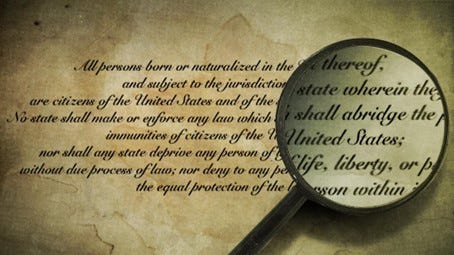


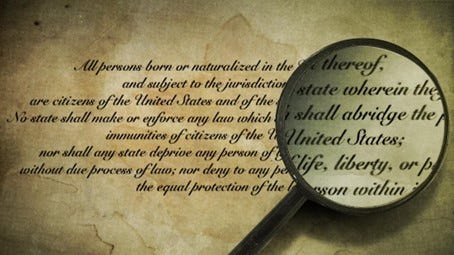




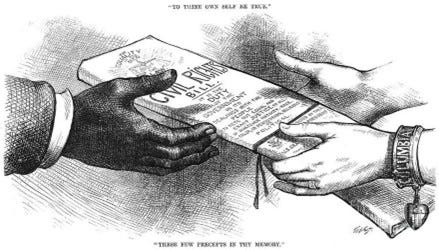

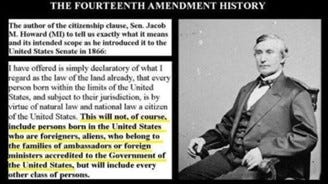
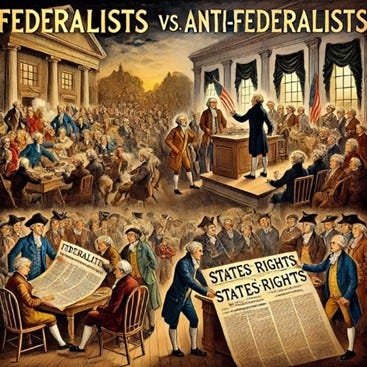

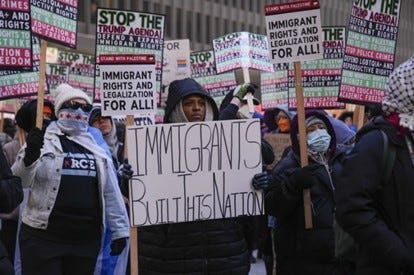





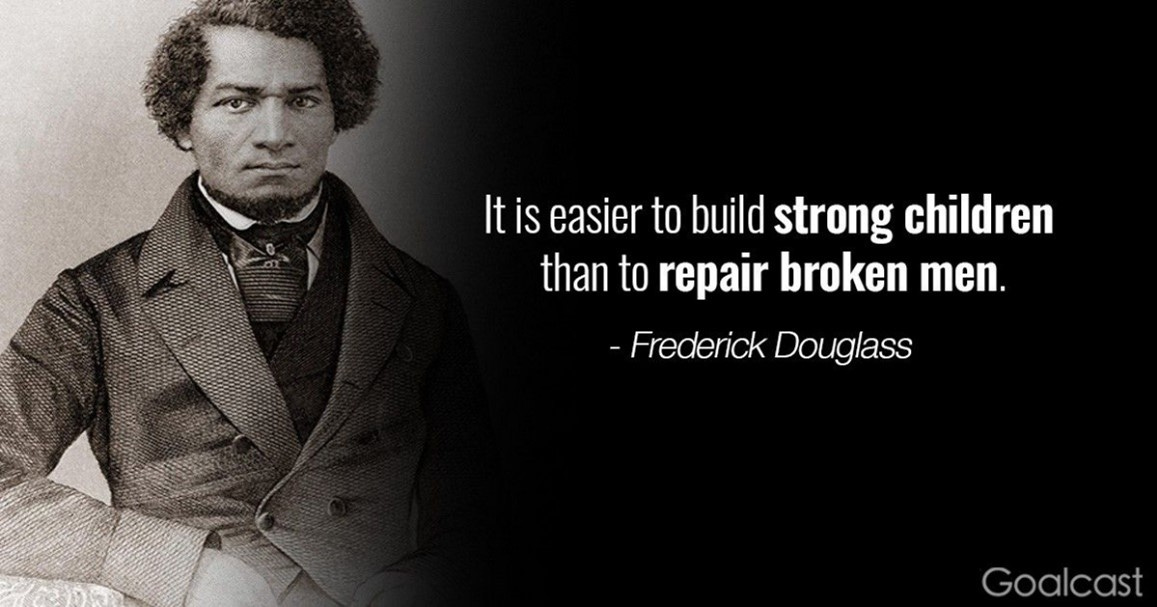

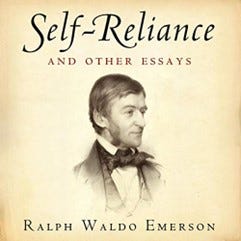
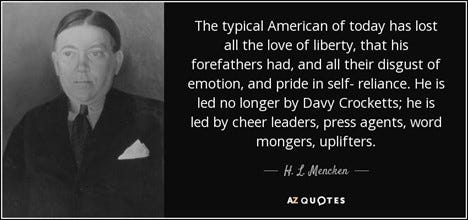
I think the key element of The United States v. Wong Kim Ark (1898) is this: "have a permanent domicile and residence in the United States, and are there carrying on business."
Illegal aliens *inherently* lack the ability to have a permanent residence in the U.S., since they are susceptible to deportation at any time. And an illegal alien who is living off government largesse can hardly be said to be "carrying on business."
As little as I dislike rewarding bad behavior, I would be willing to accept a path to permanent residence (not necessarily citizenship) for illegals under the following circumstances:
- been in the U.S. longer than ten years
- can speak English fluently enough to understand immigration court proceedings
- never convicted of crime, regardless of how minor
- never lived on government welfare
This essay raises all manner of questions and concerns. They need raising and answering.
First, the Presidential "swipe of a pen."
In this case, will President Trump argue that his authority for this EO comes from Article II's authority to manage federal operations? That he sees the influx of illegal aliens as falling under that authority since the U.S. has federal immigration laws? Apparently, he does. Apparently, he is taking the "subject to the jurisdiction thereof" very literally.
Under the Articles, persons were citizens of their State since there was no national government. The Constitution and then the War of Northern Aggression cleared the path for a national government. The jurisdiction and authority of the national government then superseded that of the States. That's what Americans have lived with ever since.
As a property rights question, on what basis does anyone argue the lawfulness of forced payment and support for those "alien" to the country? For the "beautiful" people of Massachusetts who want these people cared for, they have every right in the world to do so in their own homes. That is, they have every right to be charitable.
Yet, their elected federal representatives and others from around the country have enacted federal legislation managing the influx of foreign nationals into the country. So if those beautiful people put their money where their mouths are, housing, feeding, educating, providing healthcare, etc., would violate federal law.
So, if we support the idea of being "subject to a national government's jurisdiction," (How many did for the first "Roe v. Wade" Supreme Court decision?), how does a woman subject to another national government's jurisdiction (citizen status) pass on to her child the jurisdiction of a national government to which she is not subject? Simply because she "dropped" the baby on the soil of that national government?
I'm rambling...While I do not support Trump's "swipe of the pen" on this, it has raised very important questions that needed raising -- and answering.